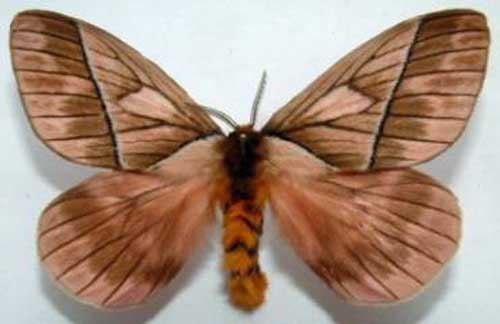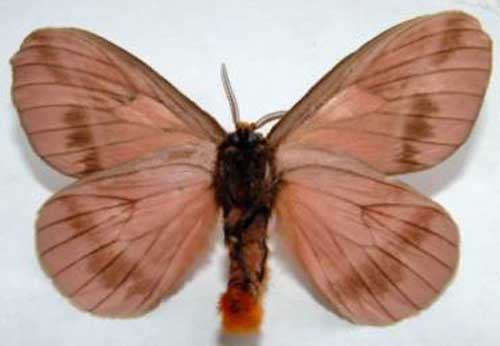Pseudodirphia regia madriziana
|
|
Updated as per Wiki, December 31, 2012
|
Pseudodirphia regia madriziana
soo-doh-DIRF-ee-uhMREE-ghee-uhMmah-DRIZZ-ee-an-uh
Brechlin & Meister, 2011

Pseudodirphia regia madriziana male, Rio San Juan, Nicaragua,
May 6, 2004, col. Marvin Torrez & Sandra Arana; via Jean-Michel Maes.
| TAXONOMY:
Superfamily: Bombycoidea, Latreille, 1802
Family: Saturniidae, Boisduval, [1837] 1834
Subfamily: Hemileucinae, Grote & Robinson, 1866
Tribe: Hemileucini, Grote & Robinson, 1866
Genus: Pseudodirphia, Bouvier, 1928
| | MIDI MUSIC
"What.A.Wonderful.World"
copyright C. Odenkirk
MIDI CITY
ON.OFF
<bgsound src="world.mid" LOOP=FOREVER>
|
DISTRIBUTION:
Pseudodirphia regia madriziana
(wingspan: males: 84-90mm; females: larger) flies in
Nicaragua:
Jinotega: Cerro Kilambe: La Quebrada; Las Torres; Macizo Peñas Blancas; 1000-1300 m, 23/30-IV-2001, 20/22-VI-2001, 25-VII-97;
Zelaya: Sulum; Cerro Saslaya; 220-950m, I-96, IV-1999, 2-VI-97;
Río San Juan: Los Guatuzos, Río Papaturro; Reserva Indio Maíz, Boca San Carlos; 40m, 21/29-V-2000, 19/28-X-2000.

Pseudodirphia regia madriziana male (verso), Rio San Juan, Nicaragua,
May 6, 2004, col. Marvin Torrez & Sandra Arana; via Jean-Michel Maes.

Pseudodirphia regia madriziana male, 84mm, Nicaragua,
on my home computer only.
FLIGHT TIMES AND PREFERRED FOOD PLANTS:
This species
has been taken in January, April-May-June-July, October. I suspect there are additional flight months.
Natural larval hosts are unknown, but Robinia is a likely
choice and has been used with success by
Kirby Wolfe for other species
in this genus.

Pseudodirphia regia madriziana male, 90mm, Nicaragua,
on my home computer only.
ECLOSION, SCENTING AND MATING:
Males use
highly developed antennae to locate females at night by tracking
their airbourne pheromone plume.
At rest, moths fold wings over
the body in typical
Hemileucinae style.
EGGS, LARVAE, COCOONS AND PUPAE:
Eggs are
deposited in clusters or rings. Larvae are gregarious and are well
equipped with urticating spines. A light, single-walled
cocoon is spun among leaf litter.
|
|
|
It is hoped that this alphabetical listing followed by the common
name of the anticipated foodplant will prove useful. The list is not exhaustive.
Experimenting with closely related foodplants is worthwhile.
Use your browser "Back" button to return to the previous page.
Return to Pseudodirphia Genus
Return to South American Saturniidae Direcotry
Return to Main WLSS Index
The pronunciation of scientific names is
troublesome for many. The "suggestion" at the top of the page is
merely a suggestion. It is based on commonly
accepted English pronunciation of Greek names and/or some
fairly well accepted "rules" for latinized scientific names.
The suggested pronunciations, on this page and on other pages,
are primarily put forward to assist those who hear with internal
ears as they read.
There are many collectors from different countries whose
intonations and accents would be different.
Pseudodirphia was chosen as the genus name
as these moths are very similar to those in the Dirphia genus.
I do not know the reason for the species name, purpurata.



